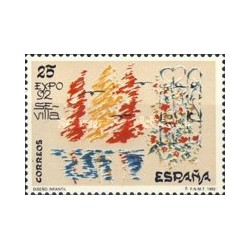- جدید
- ناموجود



توجه : درج کد پستی و شماره تلفن همراه و ثابت جهت ارسال مرسوله الزامیست .
توجه:حداقل ارزش بسته سفارش شده بدون هزینه پستی می بایست 180000 ریال باشد .
توجه : جهت برخورداری از مزایای در نظر گرفته شده برای مشتریان لطفا ثبت نام نمائید.
| Lima Barreto | |
|---|---|
 |
|
| Born | Afonso Henriques de Lima Barreto 13 May 1881 Rio de Janeiro, Empire of Brazil |
| Died | 1 November 1922 (aged 41) Rio de Janeiro, Brazil |
| Occupation | Novelist, short story writer, journalist |
| Nationality | Brazilian |
| Ethnicity | Mulatto |
| Literary movement | Pre-Modernism |
| Notable works | Triste Fim de Policarpo Quaresma, Os Bruzundangas, Clara dos Anjos, O Cemitério dos Vivos |
| Relatives | Afonso Celso de Assis Figueiredo |
Afonso Henriques de Lima Barreto (May 13, 1881 – November 1, 1922) was a Brazilian novelist and journalist. A major figure in Brazilian Pre-Modernism, he is famous for the novel Triste Fim de Policarpo Quaresma, a bitter satire of the first years of the República Velha in Brazil.[1]
Lima Barreto was born in Rio de Janeiro in 1881, to João Henriques de Lima Barreto and Amália Augusta. His father was a typographer and a monarchist who had close connections to Afonso Celso de Assis Figueiredo, the Viscount of Ouro Preto, who would later become Lima Barreto's godfather. Barreto's mother died when he was very young, and he was subsequently sent to study at a private school run by Teresa Pimentel do Amaral. Soon after, he entered at the Liceu Popular Niteroiense, after the Viscount of Ouro Preto decided to pay for his studies. He graduated in 1894, and in the following year, he would enter the famous Colégio Pedro II. Soon after he graduated, he entered the Escola Politécnica do Rio de Janeiro, but was forced to abandon it in 1904 in order to take care of his brothers, since his father's mental health was starting to deteriorate.
Barreto used to write for newspapers since 1902, but he achieved fame in 1905, writing for the Correio da Manhã a series of articles regarding the demolition of Castle Hill. In 1911 he founded, alongside some friends, a periodical named Floreal. Although it only lasted for two issues, it received a warm reception by the critics. In 1909 he published his first novel, Recordações do Escrivão Isaías Caminha, a contundent and semi-autobiographical satire of the Brazilian society. However, his masterpiece was Triste Fim de Policarpo Quaresma, that was published in 1911, under feuilleton form, being re-released under hardcover form in 1915.[2]
During his last years of life, Barreto was attacked by heavy bouts of depression, which led him to alcoholism and many visits to different psychiatric hospitals and sanatoriums. He died of a heart attack in 1922.[1]
Barreto was a very satirical author. His favoured target of criticism was the perceived mediocrity of the Brazilian people, mainly the government and the commercial/military authorities. One of his works that best represents this style is Os Bruzundangas, a collection of tales he published in newspapers during a period of 20 years.[2]
The author also heavily criticized the baroque and difficult writing style which was popular among Brazilian authorities as a symbol of "intelligence" and "high social status". Due to his feelings on this issue, Barreto adopted a more simple style in his books which was more accessible to a majority of the Brazilian people. This provoked an increasing number of criticisms against the author, who was persecuted by the Brazilian elite for his non-classical style.
Barreto also explored the psychological conditions of his characters, although he is not as well known for this as other prominent Lusophone writers like the Brazilian Joaquim Maria Machado de Assis or the Portuguese José Maria de Eça de Queiroz. His books often explore the curious beliefs and thoughts of his characters: for example, Policarpo Quaresma (Barreto's most legendary creation) was a radical and almost utopian patriot, and his beliefs led him to a tragic end. Policarpo was also innocent enough to believe the Brazilian "original nature" could be restored. Exaggerated innocence had also condemned the character Clara dos Anjos to a life of dishonor. As for the antagonists, Barreto explores their hypocrisy, ignorance and indifference to the suffering of others. Psychopathy is presented in his posthumous book Clara dos Anjos by the antagonist Cassi Jones, who has typical habits of a social psychopath: absence of care for other people's feelings, selfishness and cold calculation to achieve his goals, no matter how vile they are.
تشکر نظر شما نمی تواند ارسال شود
گزارش کردن نظر
گزارش ارسال شد
گزارش شما نمی تواند ارسال شود
بررسی خود را بنویسید
نظر ارسال شد
نظر شما نمی تواند ارسال شود

check_circle
check_circle

















